As 90 minutes of oral arguments in the nation's high court concluded, reports began trickling out about what transpired as the nine justices considered whether the U.S. Constitution guarantees same-sex couples the right to marry.
A second set of oral arguments, scheduled for one hour, considered whether the Constitution requires states to recognize same-sex marriages legally performed in other states.
Find updates about the first portion of the hearing below, and read The Advocate's blow-by-blow report from the second half of the hearing here.
In her opening statement for the consolidated case originating in Ohio, Obergefell v. Hodges, pro-equality attorney Mary Bonauto noted that the love, commitment, and mutual support shared by married same-sex couples is equal to that of opposite-sex spouses, but that same-sex couples are denied the legal protection afforded to opposite-sex couples.
(RELATED: Listen to the Oral Arguments of Obergefell v. Hodges)
"The stain of unworthiness that follows on individuals and families contravenes the basic constitutional commitment [of] equal dignity," said Bonauto, according to audio made available by the court. The entire purpose of the Fourteenth Amendment, Bonauto argued, is to protect people from being relegated to second-class status.
Justice Ruth Bader Ginsburg was the first to pose a question in the hearings, asking Bonauto how the court's decision in Windsor, which allowed states to continue to define marriage as they see fit but allowed the federal government to recognize same-sex marriages, played into the questions before the court today.
Bonauto said that states do have the right to define marriage by their own terms, "except that their laws must respect the constitutional rights of persons, and Windsor couldn't have been clearer about that. And here we have a whole class of people who are denied the equal right" to participate in the government institution of marriage, which protects families.
"I don't think you could come out of the argument today with any good sense of what the justices were going to do in this historic case," said Tom Goldstein of SCOTUSblog while on MSNBC immediately after the hearing. He said the liberal justices, as expected, sounded like they favored the plaintiffs. The conservative justices asked "a lot about tradition, about how marriage has always been between a man and a woman."
Chief Justice John Roberts, for example, said that he had searched for definitions of marriage prior to today's hearing and was unable to find anything older than about 12 years that did not define marriage as the union of one man and one woman.
(RELATED: Antigay Heckler Dragged Out of Supreme Court Hearing)
"If you succeed, that definition will no longer be operable," Roberts told Bonauto. "You are not seeking to join the institution. You are seeking to change what the institution is."
Justice Anthony Kennedy, widely considered to be the crucial swing vote, asked Bonauto how to reconcile that marriage has always been between one man and one woman, according to the law.
Bonauto rejected the chief justice and Kennedy's claims that marriage equality was a discussion that has only arisen in the past decade or so. Instead, she pointed to the 1970s marriage equality case in Baker that came before the Supreme Court and argued that "the place of gay people in society" has been debated in court and the public sphere for the past century.
On that same line of questioning, Justice Samuel Alito pointed to what he said was the definition of marriage for "millennia" as the union of a man and a woman.
Pointing to Bonauto's claims in the brief for the Michigan case before the court, Alito asked if Bonauto believed that every state with a ban on same-sex marriage had enacted that ban out of sheer animus for gay and lesbian people, including Michigan.
Bonauto stopped short of decrying all marriage bans as motivated by outright animus, but she did find common ground among the laws seeking to deny same-sex couples the right to marry.
(RELATED: See Why Equality Advocates Are Encouraged By Their Day in Court)
"The commonality among all of the statues, whether they were enacted long ago or more recently, is that they encompass moral judgments and stereotypes about gay people," explained Bonauto. "Even if you think about something 100 years ago, gay people were not worthy of the concern of the government."
When pressed by Justice Alito for not answering his question, Bonauto hedged.
"I don't know what other societies assumed," said Bonauto. "But I do believe that times can blind, and that it takes time to see stereotypes and to see the common humanity of people who had once been ignored and excluded."
Justice Ruth Bader Ginsburg responded by noting that marriage had already changed from its millennia-old definition of being defined by a dominant and subordinate partner.
"There was a change in the institution of marriage, to make it egalitarian, when it wasn't egalitarian, same-sex unions wouldn't fit into what marriage once was," Ginsburg said.
Justice Antonin Scalia seemed to reject Ginsburg's assessment, noting that prior to the Netherlands in 2001, no society had envisioned marriage to include same-sex couples.
"The issue is not whether there should be same-sex marriage, but rather who should decide the point," said Scalia. "You're asking us to decide it for this society when no other society until 2001 ever had it."
One of the more tense exchanges during Bonauto's arguments came when several of the justices questioned Bonauto about the historical scope of legal marriage. Justices Stephen Breyer, Alito, and Kennedy all cited Ancient Greece as a society that embraced homosexuality and a form of legal marriage equality -- asking whether those ancient societies cut the legs out of Bonauto's argument that gay, lesbian, and bisexual people face a long history of discrimination.
Bonauto responded by again pointing to the Fourteenth Amendment to the Constitution, which "sets forth principles that we are all governed by and govern our lives."
"Likewise, even if race was not used as a basis for discrimination in every single state as a matter of law, it was incredibly pervasive," said Bonauto of discrimination against interracial couples before the court issued its landmark decision in Loving v. Virginia. "And again, changing that, as Virginia resisted in the Loving case, resisted and said, 'Please, wait and see,' 80 percent of the American public was with Virginia on that. But again, it was the question of the individual liberty of the person to do something that was considered a profound change in its time."
(RELATED: Meet the People Who Waited Days in Line to Attend Hearing)
That's when Justice Alito asked Bonauto to explain, if the court ruled in favor of marriage equality nationwide, why it wouldn't subsequently be required to rule in favor of polygamy or group marriages.
Bonauto offered two reasons: "One is whether the state would even say that such a thing is a marriage," Bonauto said. "But then beyond that, there are definitely going to be concerns about coercion and consent and disrupting family relationships when you start talking about multiple persons."
Justices Alito and Scalia were not satisfied with Bonauto's answer, and asked her to explain why a petition to recognize multiple people in a relationship as a marriage was any different from asking the court to recognize the right of same-sex couples to wed, which has never before been enshrined in the U.S. Constitution.
Assuming the court agreed that a right to marry was a fundamental right, Bonauto stressed that the legal concerns with multiple-person marriage would be "lots of family-disruption issues."
"I assume that the states would come in and they would say that there are concerns about consent and coercion," she continued. "If there's a divorce from the second wife, does that mean the fourth wife has access to the child of the second wife? There are issues around who is it that makes the medical decisions, you know, in the time of crisis."
Justice Kennedy later opined that the court should only cautiously consider recent social science studies showing that same-sex couples raise children as well as opposite-sex couples.
But Bonauto was ready with a powerful response about why such a "wait-and-see" approach was not cautious, but discriminatory.
(RELATED: Photos of the Intense Scene Outside the Supreme Court Hearing)
"I do think the effect of waiting is not neutral," said Bonauto. "It does consign same-sex couples to this outlier status, and there will be profound consequences that follow from that."
Moments after Bonauto concluded her argument, a heckler interrupted the proceedings, activist Lane Hudson tells The Advocate. Hudson was inside the courthouse, waiting in line to hear a brief segment of the argument.
"The doors burst open," recalls Hudson. "It happened very quickly -- there was a guy yelling and security guys dragging him out, and he was resisting and flailing and refusing to go. They had to drag him out and subdue him right outside the doors and cuff him. He didn't stop yelling the whole time."
Following the interruption, the U.S. solicitor general, speaking on behalf of the Obama administration, urged the court not to wait on bringing marriage equality to all 50 states. Same-sex couples "deserve the equal protection of the laws, and they deserve it now," said Donald Verrilli Jr., according to USA Today reporter Brad Heath.
At that point, Michigan's special assistant attorney general, John J. Bursch, approached the court to argue the state's case supporting its existing ban on same-sex marriage.
Essentially, the state argued that "we're not ready yet," said Bursch. "This case isn't about how to define marriage. It's about who gets to define that question. Is it the people acting through the democratic process, or is it the federal courts? And we're asking you to affirm every individual's fundamental liberty interest in deciding the meaning of marriage."
That's when Justice Sonia Sotomayor interjected.
"I'm sorry," Sotomayor said. "Nobody is taking that away from anybody. Every single individual in this society chooses, if they can, their sexual orientation or who to marry or not marry. I suspect even with us giving gays rights to marry, that there's some gay people who will choose not to. Just as there's some heterosexual couples who choose not to. So we're not taking anybody's liberty away."
Bursch responded, "We're talking about the fundamental liberty interest in deciding the question of what marriage means," which prompted Justice Breyer to interrupt.
Noting that marriage has been "fundamental" for "10,000 years," Breyer pointed out that marriage is currently "open to vast numbers of people who both have children, adopt children, don't have children, all over the place."
"But there is one group of people whom they won't open marriage to," Breyer continued. "So they have no possibility to participate in that fundamental liberty. That is people of the same sex who wish to marry. And so we ask, why? And the answer we get is, well, people have always done it. You know, you could have answered that one the same way we talk about racial segregation."
The second response to that question, Justice Breyer posited, is that same-sex marriage is wrong "because certain religious groups do think it's a sin. ... There's no question about their sincerity, but is a purely religious reason on the part of some people sufficient?"
Bursch responded by saying that the arguments outlined by Justice Breyer were not the arguments the state was advancing. Instead, he said, the state argues that "the marriage institution did not develop to deny dignity or to give second-class status to anyone." Marriage evolved, Bursch claimed, to support relationships that "arise from biology."
Bursch then claimed that in the eyes of the state, marriage has nothing to do with love and commitment.
"As a society, we can agree that that's important, but the state doesn't have any interest in that," said Bursch. Instead, the state's primary interest is in regulating procreation, Bursch contended.
That caught the attention of two of the more reliably liberal justices on the court. Saying she understood the state's argument that it has an interest in regulating procreation, Justice Elena Kagan asked Bursch directly if the state was arguing that marriage equality would somehow impinge upon that state interest.
Bursch said the state was indeed making that claim.
But "how could that be," asked Justice Ginsburg. "Because of all the incentives, all of the benefits that marriage affords would still be available."
"So you're not taking away anything from heterosexual couples," Ginsburg continued. "They would have the very same incentive to marry, all the benefits that come with marriage that they do now."
Bursch said that the state's interest "has to do with the societal understanding of what marriage means."
"When you change the definition of marriage to delink the idea that we're binding children with their biological mom and dad, that has consequences," Bursch said.
"You don't do that," interjected Justice Sotomayor. "Marriage doesn't do that on any level. How many married couples do fathers with the benefits or the requirements of marriage walk away from their children? ... How does withholding marriage from one group -- same-sex couples -- increase the value to the other group?"
Bursch said that under rational basis review, the state did not have an answer to that question.
Justice Kagan pressed Bursch to explain the state's reason for denying "something as fundamental to a society and to individuals as marriage" to same-sex couples. "What is the reason for the exclusion rather than the reason for the noninclusion?"
Bursch claimed that the state wasn't aiming for an "exclusion," but rather seeking "a definition to solve a particular problem."
"If marriage and creating children don't have anything to do with each other, then what do you expect?" continued Bursch. "You expect more children outside of marriage."
Again, Kagan pressed Bursch on the suggested causality of that relationship: "Do you think that that's what it would do, Mr. Bursch, that if one allowed same-sex marriage, one would be announcing to the world that marriage and children have nothing to do with each other?"
"Not in the abstract, your honor," replied Bursch.
"Well, not in the abstract, not in the concrete," concluded Justice Kagan.
Bursch went on to offer a hypothetical example of two similarly situated couples -- one same-sex and one opposite-sex -- each married for five years, with a 3-year-old child. A "reasonable voter," Bursch claimed, could conclude that the child raised by same-sex parents, who believed marriage to be about love and commitment, would be more likely to have a child out of wedlock than the young person who was raised in a family where marriage was understood to be a legal bond connecting a child to their biological parents.
"But that assumes that same-sex couples could not have the more noble purpose, and that's the whole point," countered Justice Kennedy. "Same-sex couples say, of course, we understand that nobility and sacredness of the marriage. We know we can't procreate, but we want the other attributes of it in order to show that we too have a dignity that can be fulfilled."
As Bursch continued attempting to advance the claim that children raised with an understanding of marriage to be about love and commitment would be more likely to have their own children out of wedlock -- a claim for which he did not provide evidence -- Justice Kagan drilled holes in the state's argument. She asked Bursch whether a state with a procreation-focused marriage law could reasonably restrict marriage licenses only to those couples who planned to have children.
"I think it would be an unconstitutional invasion of privacy to ask the question," Bursch eventually admitted.
Justice Sotomayor eventually summed up the question before the court in what she described as "as simple as the question gets."
"You can't narrow it down to say, but is gay marriage fundamental?" Justice Sotomayor stated. "Has black-and-white marriage been treated fundamentally? The issue was starting from the proposition of, is this right to marry fundamental? And then is it compelling for a state to exclude a group of people?"
Bursch responded by saying that the state wasn't arguing about how broadly or narrowly the court should interpret the right to marry, but rather that the court's "long-established precedent in the fundamental rights arena" was designed to create a balance between federal courts and state law.
"It doesn't matter how broadly or narrowly we define it," said Bursch. "What's been fundamentally understood as a limitation is the opposite-sex nature of marriage."
That's when Chief Justice John Roberts weighed in, speculating that it may not be necessary to bring sexual orientation into the conversation at all -- that bans on same-sex marriage appear to be discriminatory on the basis of sex.
"If Sue loves Joe and Tom loves Joe, Sue can marry him and Tom can't," said Chief Justice Roberts. "And the difference is based upon their different sex. Why isn't that a straightforward question of sexual discrimination?"
Bursch offered two reasons, noting that the marriage bans do not treat men and women differently, as do other sex discrimination laws struck down by the court. Additionally, Bursch said that the court has recognized that "it's appropriate to draw lines based on sex if it's related to biology." The state's argument that it has a legitimate interest in promoting procreation is such a biologically based claim, Bursch contended. He rejected charges from Justices Ginsburg and Kagan that the marriage bans discriminate against individuals based on sexual orientation.
In fact, Bursch claimed, "the state doesn't care about your sexual orientation. What the state cares about is that biological reality."
Lucas Grindley and Neal Broverman contributed reporting to this article.
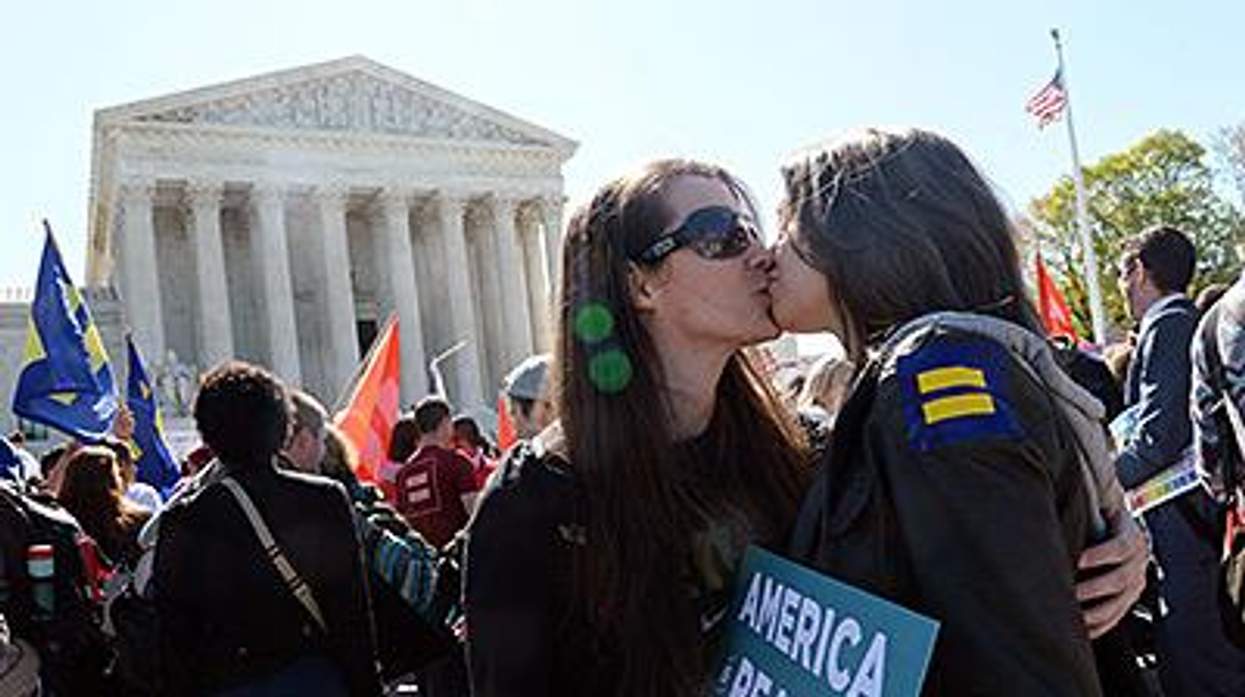





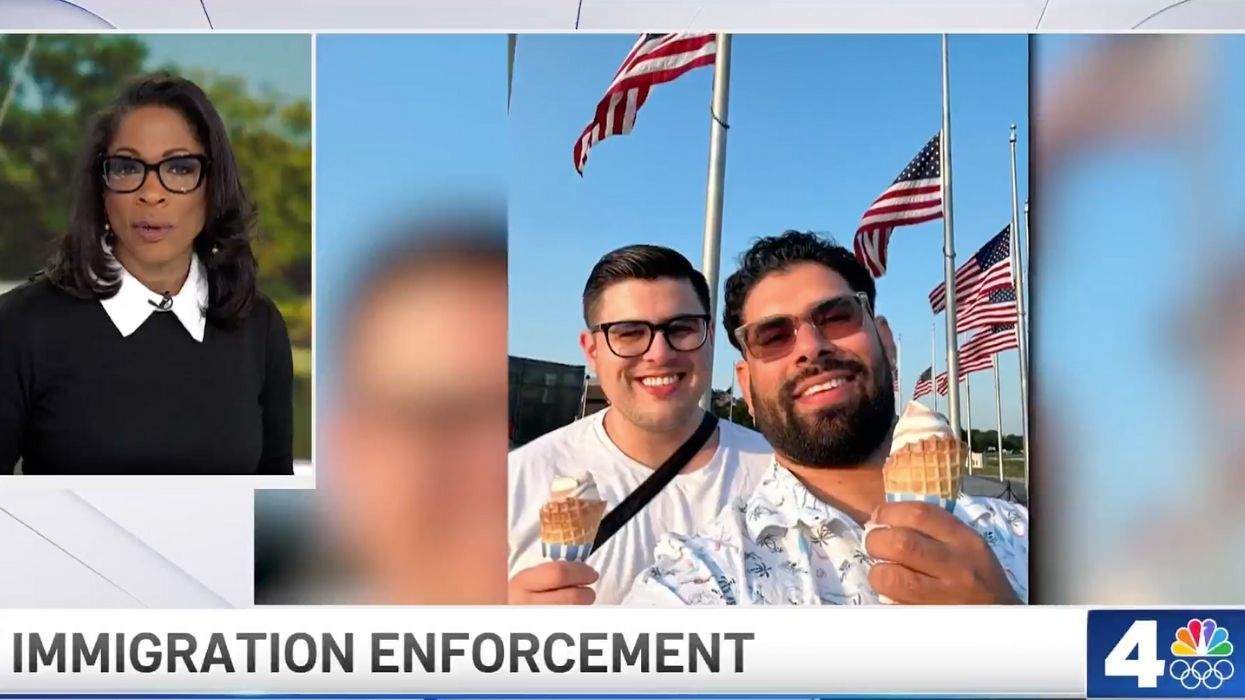
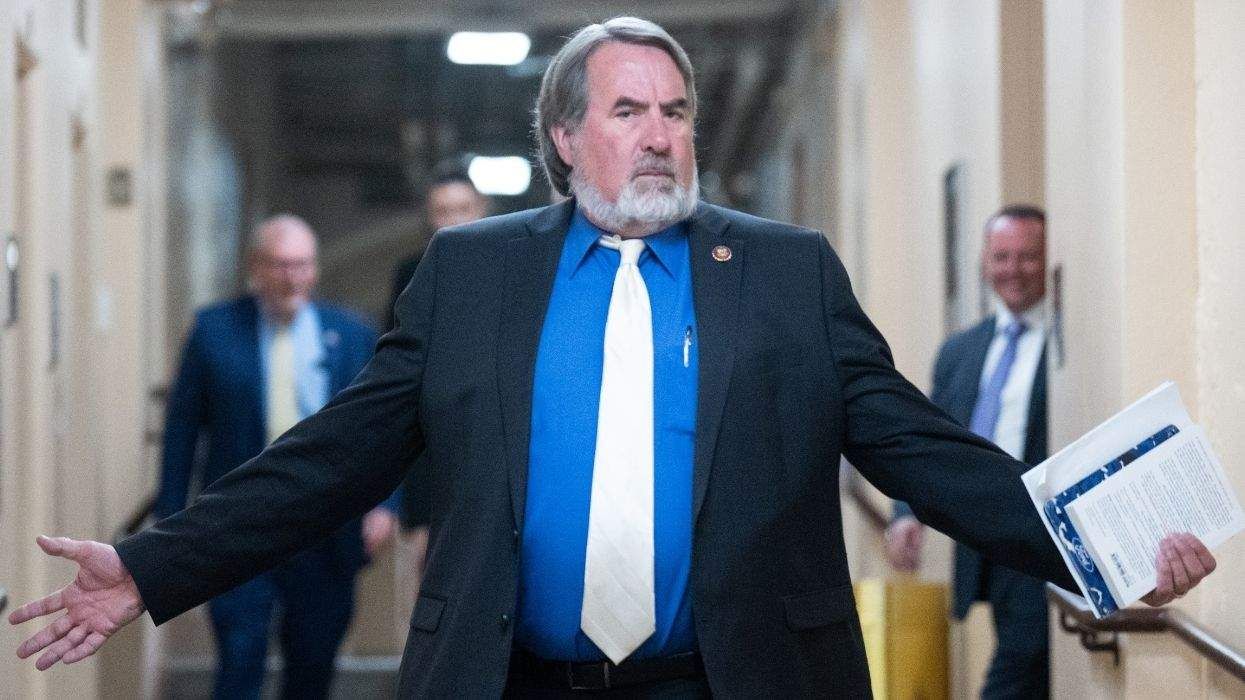

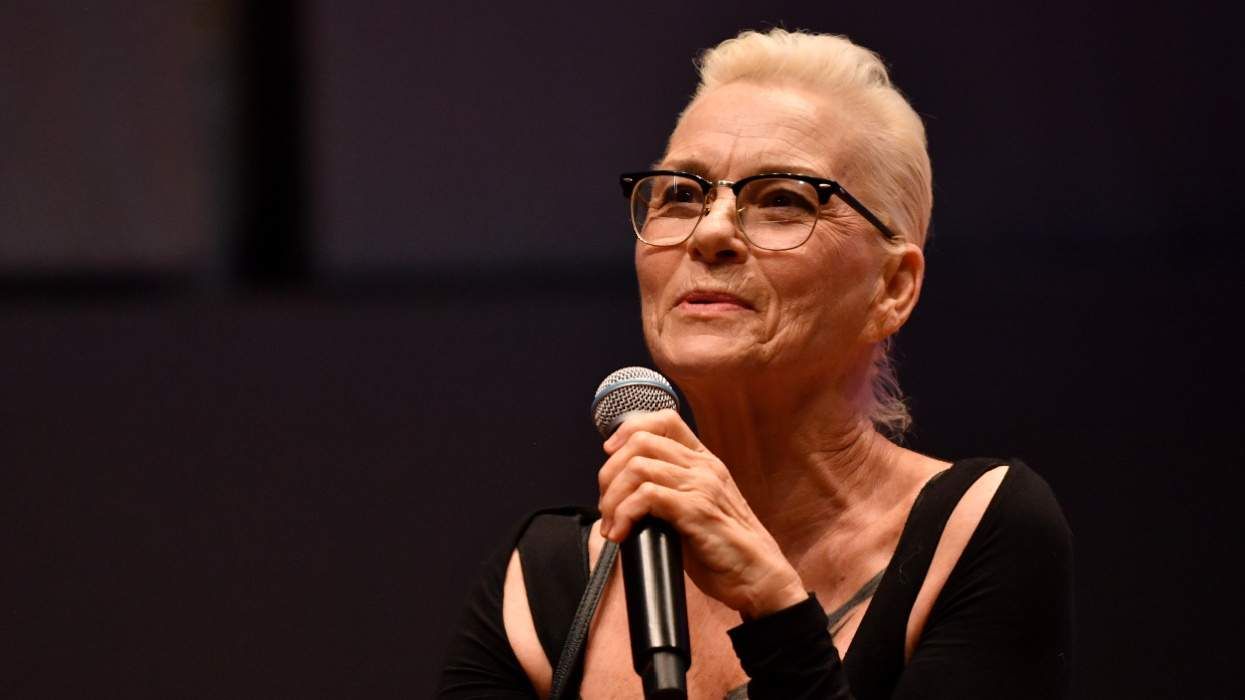
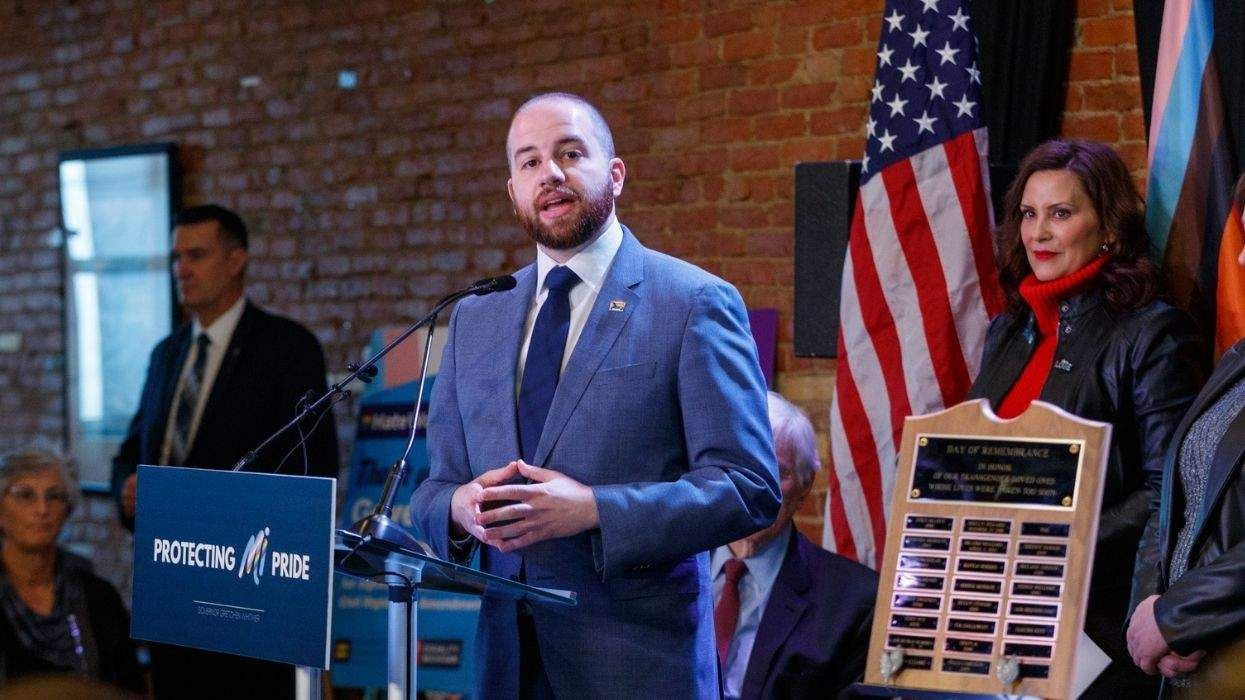





Charlie Kirk DID say stoning gay people was the 'perfect law' — and these other heinous quotes
These are some of his worst comments about LGBTQ+ people made by Charlie Kirk.